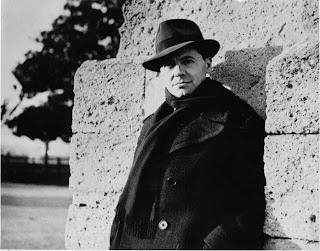Jean Moulin, a famous French politician and resistance
fighter, is certainly the historic figure I admire the most because of his actions
for our country.
He was born in 1899 in Béziers. He spent a peaceful childhood
with his brother and sister. He was
influenced by his father, a regional councilor, and became interested in politics.
In 1917 he decided to integrate the Law faculty of Montpellier. After a short
year of study he was sent to Vosges to fight in the First World War in 1918.
He became General Secretary of the Prefecture then Under
Prefect, the youngest in France.
In 1936 he became a member of staff of the Minister of
the Air force for the government called “Front populaire”. He was able secretly
to help to Republican fighters in the Spanish Civil War by sending them planes.
In 1937 he was named Prefect in Rodez, the youngest in France. On the eve of
the Second World War he became Prefect in Chartres.
Because of the rise of political extremes in Europe the
Second World War broke out. This confrontation was the theatre of Jean Moulin’s
heroic and exemplary actions. At the beginning of the war he tried to integrate
the French army but the Home Office forced him to keep his position.
In 1940 for the first time he acted against the Germans
and refused to sign a declaration which accused some Africans of killing civilians.
As a result Jean Moulin was imprisoned and tortured. He decided to commit
suicide by cutting his own throat. His attempt failed and since that day he wore
a scarf to hide his scar. Due to this experience he began to strongly hate the
Nazis.
In 1941, Jean Moulin went to London after having
crossed Spain and Portugal. Over there he met Charles de Gaulle who gave him his
mission: to unite all the resistance movements. He returned to France in 1942
and set up his base in Lyon. “Rex” (his code name) succeeded in creating the
secret army in 1942 which included soldiers from the three groups of resistance
fighters: “Combat”,”Libération” and “Franc-tireur”.
He went back to London in 1943 and was decorated with
the liberation cross. He went back to France and set up the CNR (Conseil
National de la Résistance) in order to improve the organization of the different
actions of resistance.
In 1943, Jean Moulin was recognized by the Gestapo. He
was arrested and tortured. He did not speak and showed his courage during the many
interrogations. He was transferred to Germany but died during the journey in
the train on the 8th July 1943.
His ashes were sent to the Panthéon to lie among the
major figures of the country. He well deserves his place there. Who can’t
admire this man for his actions? It is really uncommon to find a man with so
much courage to defy the biggest dangers and suffering. He was a great leader.
It is important to say that he wasn’t the only one who showed a lot of bravery
during this Second World War; however he became the symbol of this heroic
movement and a major historic figure who fought to make Europe a better place,
free from tyranny.

No comments:
Post a Comment